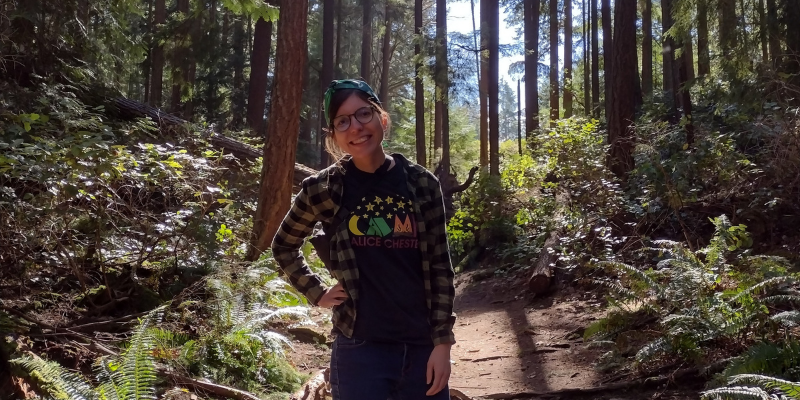As a library and information science student, digital literacy is foundational to scholarly success. Discerning what (and who and where) works for a particular research prompt takes time. Information is for use, but not all content is created (nor distributed) equally. Likewise, information – though seemingly objective – may take emotional discernment. That’s due in part to the ever-rolling information landscape. Or should I say, ever-scrolling?
While I am creating less content, such as no longer making ads, I still consume so much media on my phone. At the start of the year, I used the Forest app to track time away from my device. And that worked, for a month. A habit’s not a system if it’s not sustainable. I can’t help but turn to that pesky little computer that is a phone, again and again.
After studying media psychology in undergrad, you’d think I’d “know” better. Sure, I cognitively know the alerts will still be there, even after an hour or 2 (or 6) away. But that sweet temporary satisfaction of realizing and releasing the alert continues to call. Such alerts are designed to be addictive. They are easily “solved”, but they don’t do much to truly satisfy the craving. So that’s where the scroll comes in.
This seemingly inability to stop the scroll is not uncommon. So, instead of scrolling, I am making active steps to create. And that includes making and using some of the stuff I see on the phone, not only for the satisfaction of time away, but also to check reality:
- For example, I am learning how to cook some of the recipes the ‘gram continues to serve up – reminding me that cooking, while easily digestible on the ‘gram, is really a slower process
- I’m taking influence from some crafty content creators and making mixed media collages, just like I intended for July’s experiment – my partner and I had a wholesome weekend making art!
- My hair has shifted from teal to a sea of mermaid greens, and so it’s time to learn how to do some hairdos from Pinterest
- Signing up for specific Facebook groups to nurture interests, such as a book club with choices curated by my favorite band
I don’t want to diss anyone who struggles with digital use. Instead, I want to remind you that we humans are easily swayed by what’s inches in front of us. One thing I try to do is plan breaks from the phone. Or at least, I switch to silent and grayscale mode to remove the alerts after 10pm.
We become the environments we’re consistently exposed to, so that’s why another antidote to phone use is embracing some of the content. Some virtual spaces grab my attention more than others; namely, vegan foodies, fellow sad dads of the National, doggo content, and armchair therapy.
Will there be a dissonance between what I consume and create? Only a few weeks in, I’m in the affirmative. At least for creating and cooking, I don’t quite have a measurement or system yet to compare how much longer it takes me to make something. But creation is significantly more satisfying than a scroll. And so maybe I’ll design some spreadsheets and/or charts to show reality? (Comment if that’s of interest!)
Content creators spend ample time making their work look simple or digestible. Or at least quick and easy. Just like information literacy, not all audiences have ready access to materials, nor the time to select what’s truly needed to make the project. There is a quiet privilege to much content found in social media feeds. But there’s also a lot of work behind the scenes, too. That’s a paradox we forget.
Here’s some questions to systemize digital use:
- How are you affirming your values through what’s on your feed(s)?
- What, who, and where are authentic to you? (Perhaps each medium has a place, like Facebook groups vs. specific creators on Pinterest, like my examples above)
- What little experiments can you try, with the content as inspo?
- How can you not shame yourself for phone use?
- When or where are your boundaries? (For example, my phone switches to a grayscale and silent at 10pm, but I’m considering switching that to 9)
Recognizing the shared humanity, digital literacy is important far more than ever. AI-created content, algorithms reinforcing biases, and other silos are further grouping people, too. That also means MANY people are struggling, so maybe try starting a conversation with them? Perhaps set a boundary or creation challenge? However you consume or create content, know you are not alone. Now get off your phone!
